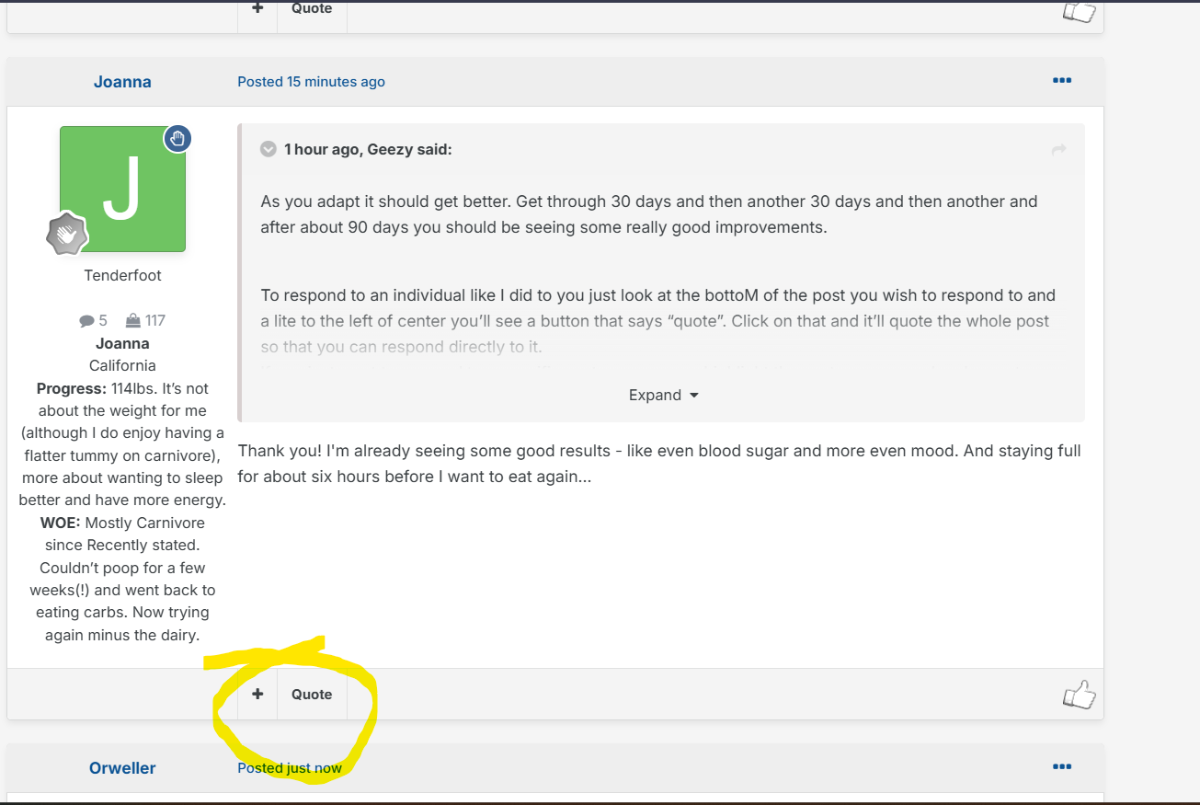Welcome to our Carnivore / Ketovore / Keto Online Community!
Welcome to Carnivore Talk! An online community of people who have discovered the benefits of an carnviore-centric ketogenic diet with the goal of losing weight, optimizing their health, and supporting and encouraging one another. We warmly welcome you! [Read More]
- Replies 3
- Views 807
- Created
- Last Reply
Popular Days
Most Popular Posts
-
How does religion play a part? 1 Corinthians 6:19-20 19 Or do you not know that your body is a temple of the Holy Spirit within you, whom you have from God? You are not your own, 20 for you were boug
-
I can relate as we have similar stories. Maybe the age differences stand out but coming out of the service and then eating our ways to unhealthiness. Maybe another difference is I made a weight loss
-
That's a good question. I went back and reread his blog article and he doesn't answer this directly. I tried to leave a comment on his blog but the software is broken and won't let me comment. He say









Obesity Laid Bare: A Carnivore’s Wake-Up Call
Published by douglasschorr on Jun 9, 2025
Read the full blog post here:
https://douglasschorr.com/2025/06/09/obesity-laid-bare-a-carnivores-wake-up-call/
The following is only a summary, because I don't want to copy and paste an individual's personal blog article. It's totally worth clicking the link and reading what he wrote in his own words. - Bob
SUMMARY:
In this blog post, Douglas Schorr, a 75-year-old carnivore diet advocate, shares his journey from obesity to health, attributing his transformation to a near-exclusive meat-based diet. He recounts gaining significant weight (120 kg) during his Rhodesian National Service in the 1970s due to inactivity and a sugar-heavy diet. Three years ago, Schorr adopted a carnivore diet, dropping to 97 kg and stabilizing at 102–104 kg with added muscle. He claims this diet eliminated his sugar cravings and restored his strength and agility.
Schorr argues that obesity, affecting 42% of Americans and rising globally, is not primarily genetic but a result of modern diets high in sugar and refined carbohydrates. He likens these foods to addictive substances, citing their impact on dopamine pathways and the food industry’s role in engineering addictive products. He dismisses the calorie-centric view, emphasizing hormonal responses—insulin surges from carbs lead to fat storage.
He critiques the "Big 5 Profit Maximisers" (religion, government, food industry, pharma, and medicine) for promoting the Standard American Diet (SAD), which prioritizes carbs and sugars, fueling a cycle of obesity, diabetes, and profit. Schorr highlights the high cost of diabetes care ($237 billion annually in the U.S.) and the societal toll, including childhood obesity and diminished potential. He contrasts the slow digestion of meat (14–17 hours) with fast-digesting carbs, which leave people hungry and prone to overeating. A meat-based diet, he argues, aligns with human biology, restoring satiety and health.
The post frames obesity as a manufactured crisis, preventable through dietary change, and a rejection of the profit-driven food system.
Subscribe to Carnivore Talk on YouTube | Be our guest on the channel | Leave me a voicemail, yo!